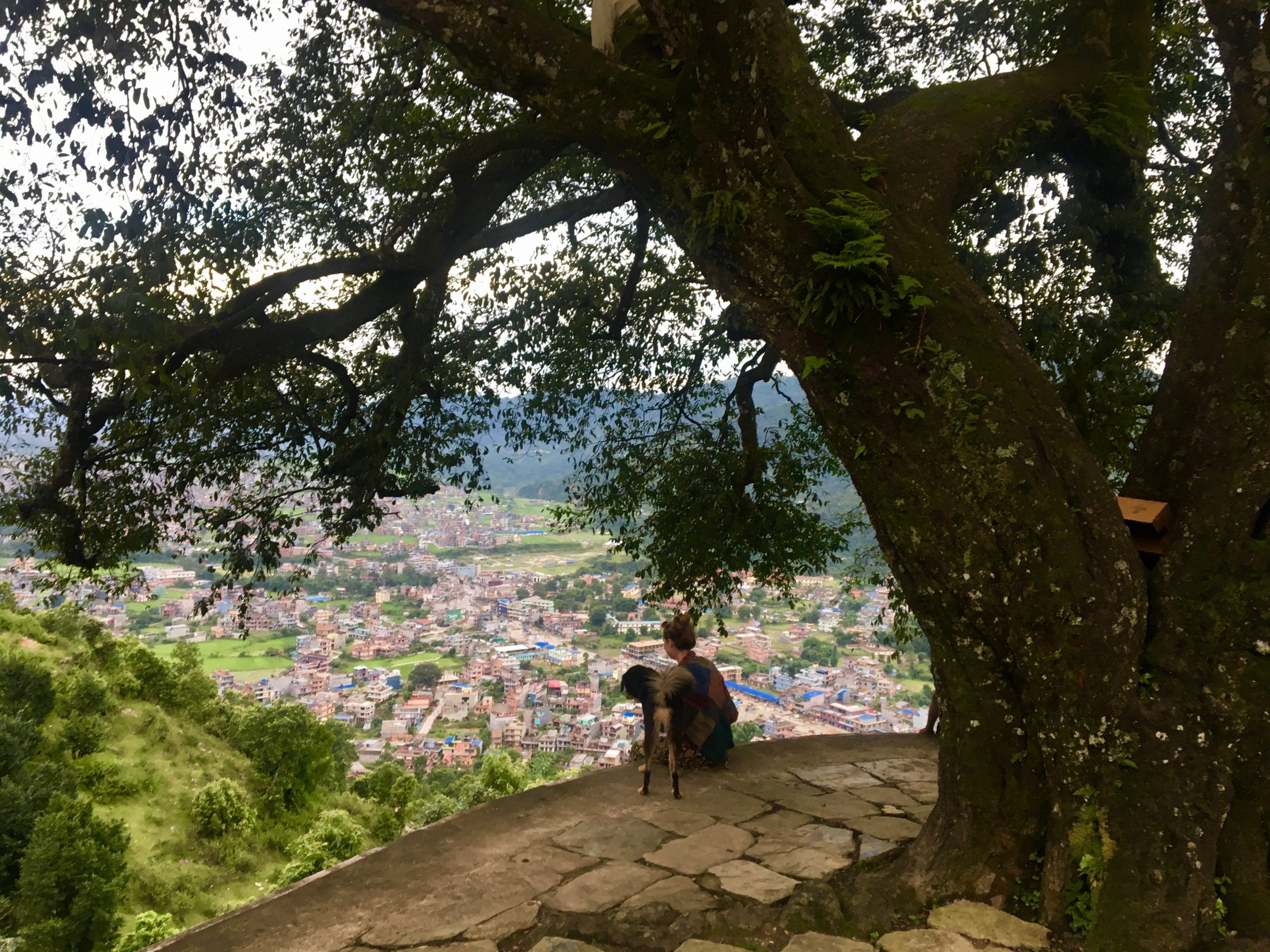Global Service Scholar: Jordan Stead
Country: Nepal
Outside the rain spotted window of the car, the passing cityscape is a blur of color and construction. It is almost as if the city is either half built, or half destroyed. The small, old buildings line the bustling and crowded rundown streets. The women wear traditional and colorful clothes as if stuck in the past, while the men can wear modern clothes. There is a striking contrast between the impoverished cities and the rich, green mountains directly encompassing it.
Nepal is a country of contrasts with a contrasting landscape, cultural values, and standards. I have observed just how much how a country so rich in crops can be so impoverished at the same time. I have noticed how a country that has such a strong religion focused on peace and love can not practice this towards half of its own population. I have seen the repression of women and the cultural standards placed on them compared to men. The biggest lesson I have learned is that it is important to understand these contrasts and how they came to be, before imposing your own preconceived ideas and beliefs. No matter how much you want to change the existing system that is in place, you need to start small. You can not change patriarchy overnight, the roads and buildings can not be built instantaneously, and the economy can not be magically restored. But what you can do is transform the way people think over time. You can create a new reality. And that is exactly what Her Farm is doing. They are not attacking the broken patriarchal system, they are creating a new way of life for women. They are inspiring young girls around the village to be something other than another statistic, another arranged marriage, or another abused wife. They are showing that women do not need to be granted power by a man, but that power to change their lives is within themselves. This novelty of women owning and running a farm, a photo studio, and a business will be normalized in the future. It all starts small. Giving patriarchy more attention, whether good or bad, just adds fuel to traditional and patriarchal fire. I have learned so much about the perspective of people in Nepal and how to reflect on my own. I was able to keep perspective on these cultural contrasts not only within Nepal, but also in comparison to the United States.
This trip will impact my life forever. I discovered this newly found confidence within myself, how to worry less, and live more simply. I was put outside my comfort zone, but I was able to overcome those feelings of uncertainty and really embrace the experience. I learned that I loved traveling and helping people. I would want to go back to Her Farm in the future because of such close connections we all made with the people there. I saw true compassion in action which made me realize even more how important it is to keep spreading the ideas of compassion and common humanity the rest of my life. I felt so loved and welcomed by the women there and I want to make it one of my goals in life to make others feel that way as well.
This experience also helped me refocus my attention on what is truly important in life. I have been stressing about applying to graduate school this fall and it made me more open to the idea of taking a gap year and that rushing through to obtain a degree on a piece of paper may not be what is most important for me. I was able to gain more insight on my own thoughts and feelings about myself and my future. I have personally grown so much this past month because of this opportunity and am so grateful to have been apart of this program.
As I stared out that rain spotted window on the way to the airport, I smiled, knowing that there is hope radiating out into the world, even from a small, remote village in Nepal. I hope others get to an opportunity in their lives to learn and experience the power of compassion and common humanity. Nepali people say “Namaste”, or “the divine in me bows to the divine in you”. Everyone could use this saying in their lives to appreciate the humanity in others. I can imagine a world where these practices are more common, especially in today’s society filled with conflict and division. I write this blog post now, filled with hope, gratitude, and am ready to face whatever the next adventure is that comes my way, because of this amazing opportunity of volunteering and integrating into the Nepali culture this past month.

